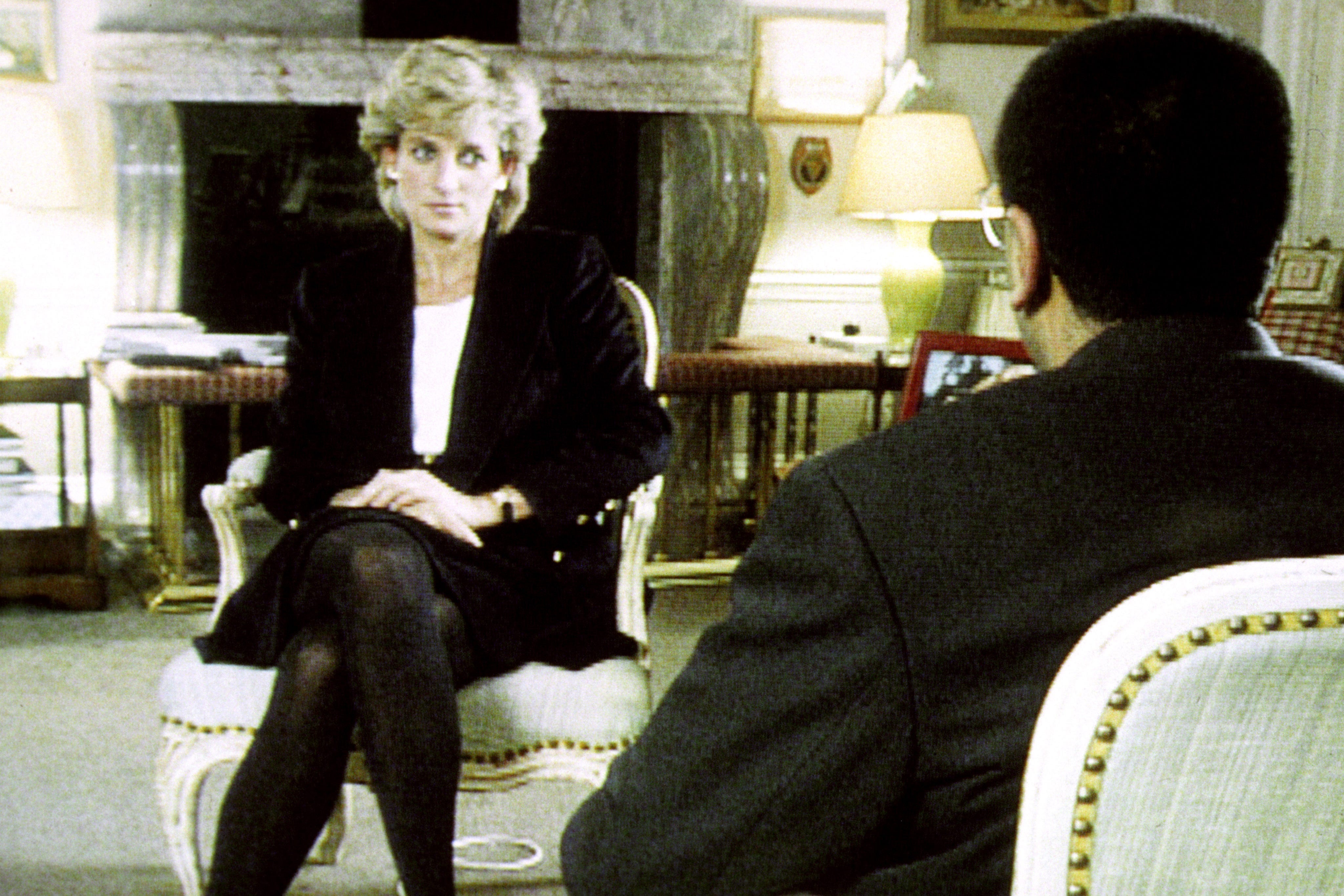Footage from Diana’s Panorama interview shown in Netflix docuseries
Midway through the first episode of Harry & Meghan, clips are shown of Diana speaking in the controversial 1995 interview.

Footage from Diana’s interview with Martin Bashir has been shown in Harry and Meghan’s Netflix docuseries, despite the Duke of Cambridge requesting the “deceitful” Panorama programme never be aired again.
Midway through the first episode, clips are shown of Diana speaking in the controversial 1995 interview, a programme that William said exacerbated his mother’s “fear, paranoia and isolation”.
Before the clip is shown, Harry, speaking about his mother’s struggles with press intrusion, says: “I think she had a lived experience of how she was struggling living that life. She felt compelled to talk about it.
“Especially in that Panorama interview. I think we all now know that she was deceived into giving the interview. But at the same time she spoke the truth of her experience.”
In the snippet from the Panorama interview used in the Netflix episode, Diana is shown saying: “I still to this day find the interest daunting and phenomenal. Because I actually don’t like being the centre of attention.
“When I have my public duties, I understand when I get out the car I’m being photographed. But actually, it’s now when I go out of my door, my front door, I’m being photographed. I never know where a lens is going to be.”
The ripple effect of a culture of exploitation and unethical practices ultimately took her life
A report by Lord Dyson, published in May 2021, found the BBC covered up Bashir’s deceit in obtaining the interview and “fell short of high standards of integrity and transparency”.
The journalist was in “serious breach” of the BBC’s producer guidelines when he faked bank statements and showed them to Earl Spencer, Diana’s brother, to gain access to Diana in 1995, the report said.
In a scathing statement issued following the publication of the report, William said: “It is my firm view that this Panorama programme holds no legitimacy and should never be aired again. It effectively established a false narrative which, for over a quarter of a century, has been commercialised by the BBC and others.”
In his rebuke of the BBC, William added: “It is my view that the deceitful way the interview was obtained substantially influenced what my mother said. The interview was a major contribution to making my parents’ relationship worse and has since hurt countless others.
“It brings indescribable sadness to know that the BBC’s failures contributed significantly to her fear, paranoia and isolation that I remember from those final years with her.”
In his response to the report, Harry said he was deeply concerned that journalistic practices like those of Bashir were “widespread today” and “bigger than one outlet, one network, or one publication”.
He added: “The ripple effect of a culture of exploitation and unethical practices ultimately took her life.”
Now we know about the shocking way that the interview was obtained, I have decided that the BBC will never show the programme again, nor will we license it in whole or part to other broadcasters
The BBC wrote to the royal family to apologise for the circumstances surrounding the Panorama interview.
In September this year, BBC director-general Tim Davie said: “Now we know about the shocking way that the interview was obtained, I have decided that the BBC will never show the programme again, nor will we license it in whole or part to other broadcasters.
“It does of course remain part of the historical record and there may be occasions in the future when it will be justified for the BBC to use short extracts for journalistic purposes, but these will be few and far between and will need to be agreed at executive committee level and set in the full context of what we now know about the way the interview was obtained.
“I would urge others to exercise similar restraint.”
Bookmark popover
Removed from bookmarks